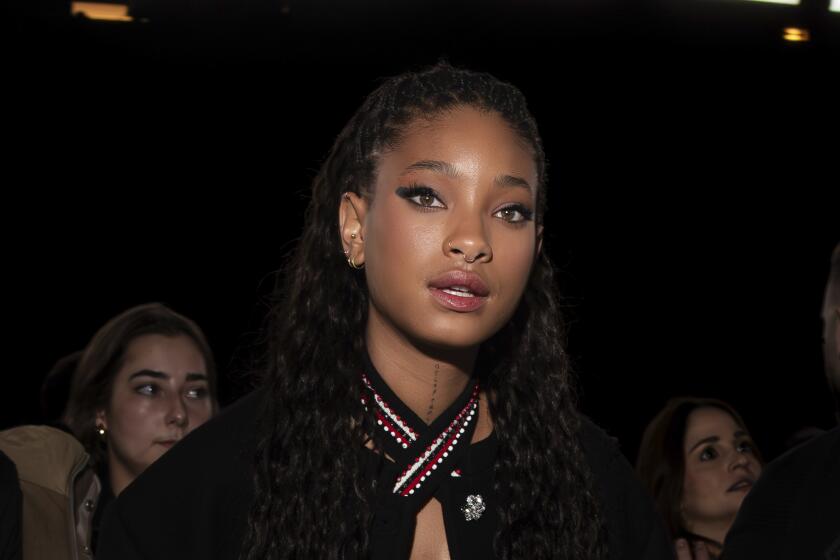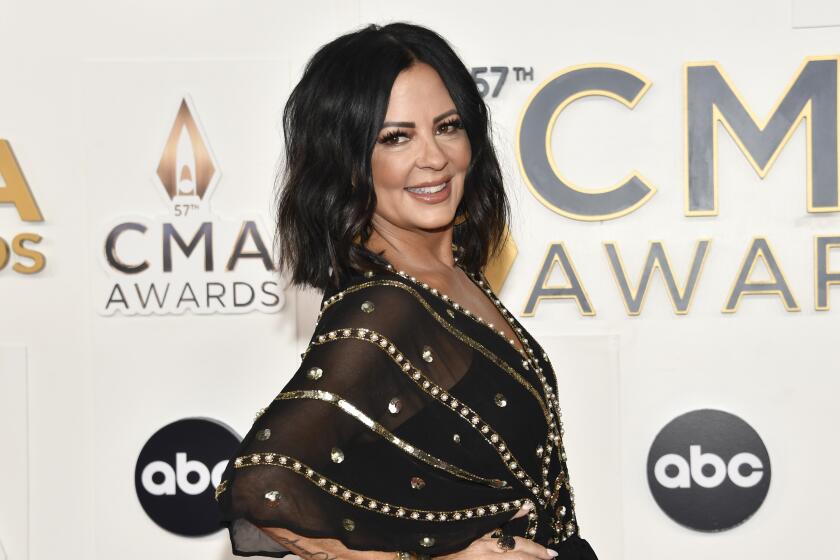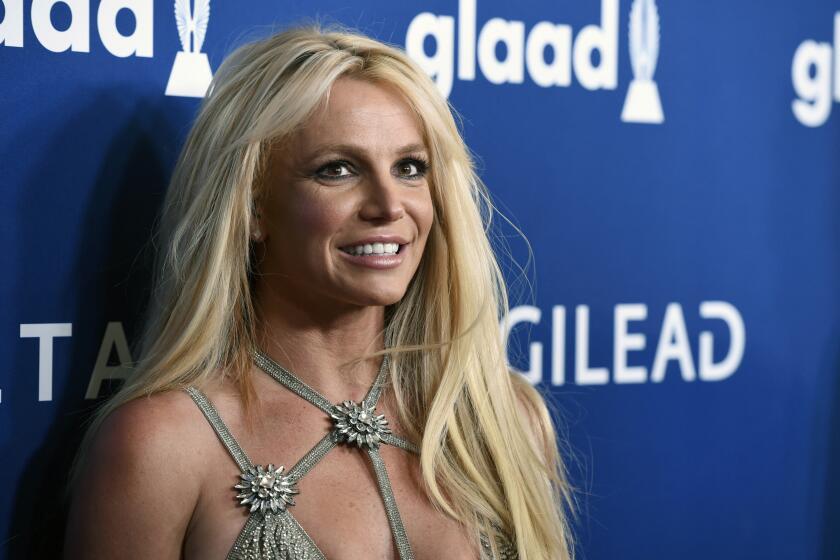Playing by the Rules?
Among radio broadcasters across the country, Hilary Duff’s sugary pop tune “I Can’t Wait” has fallen completely flat. A single station -- in Albuquerque -- has played the song just one time, and that was back in September.
There is, however, a glaring exception: the Radio Disney empire. On its 52 stations nationwide, “I Can’t Wait” is ranked No. 1, with Duff getting more airplay than Britney Spears. In Los Angeles, Disney’s KDIS-AM (710) has played the song a whopping 850 times during the last six weeks.
So why is Radio Disney in such a hurry to play “I Can’t Wait”?
Critics in the industry think they have an answer: Duff is under contract with Buena Vista Records, which is a sister company of Radio Disney, which is affiliated with the Disney Channel, which telecasts “Lizzie McGuire,” which stars Duff.
Many question whether the cozy relationship among the players -- all owned by Burbank-based entertainment giant Walt Disney Co. -- violates arm’s-length broadcasting rules of the Federal Communications Commission.
Although some of those rules have become murkier with sweeping consolidation in radio, media watchdogs say Disney and other broadcasters are testing the limits.
“This stuff clearly violates the spirit -- if not the letter -- of the law,” said media expert Robert McChesney, a professor of communications at University of Illinois. “It undermines the integrity of the public airwaves, corroding editorial space with commercial factors. It’s very damaging.”
Robin Jones, head of programming at Radio Disney, said the radio chain does not give preferential treatment to acts with business ties to its corporate parent.
“I could see where someone might misconstrue that there was a conflict of interest with this song,” Jones said. “But Hilary Duff was truly driven to No. 1 by kid requests ... not by what label” her song is on.
Jones said Duff is more popular with Radio Disney listeners than young pop star Avril Lavigne is. Lavigne has sold 2.5 million U.S. copies of her smash CD “Let Go,” according to Neilsen/SoundScan. Duff’s song, a track on the “Lizzie McGuire” soundtrack, has sold barely 124,000 copies.
Corporations are granted broadcast licenses by the government in exchange for a pledge to serve the public interest. The government prohibits broadcast licensees from using the airwaves for their own benefit or to gain a competitive advantage in any transaction.
Forty years ago, after a payola scandal, the government instituted a law prohibiting broadcasters from accepting money or anything of value for playing songs without disclosing that information to listeners.
At the same time, Congress passed a bill designed to crack down on “plugola,” demanding that broadcast licensees take “extraordinary measures” to let listeners know about potential conflicts of interest.
That law required broadcasters to disclose “publicly and prominently” the existence of financial ties.
But in the mid-1980s, the FCC decided the disclosure regulation was “unnecessarily restrictive.” The agency believed market forces would correct abuses naturally. Stations that plugged their own products, the theory went, would be abandoned by listeners, who would turn to a plethora of other choices on the dial.
The problem is that those choices no longer exist, and the rules have not been updated to reflect the effect of the 1996 Telecommunications Act, which eliminated restrictions on broadcast mergers.
“The tremendous consolidation of recent years has made the entire landscape less competitive,” FCC Commissioner Michael J. Copps said. “I understand the arguments for synergy. But I think it’s time that broadcasters start taking their public interest responsibilities more seriously. And I think the FCC needs to be more vigilant in monitoring and enforcing the laws.”
Today’s broadcast environment is dominated by corporate giants such as Clear Channel Communications Inc. It controls more than 1,200 stations, many in the same city.
Disney’s relentless promotion of Duff’s music is the latest in a series of controversial issues that raise questions about FCC rules and enforcement policies. Last month, it was disclosed that KPWR-FM (106) was giving heavy play to rapper Shade Sheist, whose CD was financed by the station’s parent, Emmis Communications Corp.
Emmis radio division President Rick Cummings said the radio chain had no legal obligation to disclose the business arrangement.
But in the face of mounting criticism, the chain decided to begin alerting listeners to the connection between the artist and the company.
KPWR programming executive Damion Young, who runs the Emmis label that releases Sheist, also charges record labels a fee to remix singles that eventually get played on Emmis stations.
In addition, several disc jockeys at Emmis stations have signed artist contracts with record labels whose music they play regularly on their shows.
“In theory, if you had to announce every one of the relationships that some of our employees at various stations have with artists and record labels, you wouldn’t be able to take care of any other kind of business,” Cummings said.
“So the question is, at what point do the disclosures have to stop?”
In the eyes of critics, of course, the more relevant question is: When will most stations start them?
The answer, for Radio Disney anyway, seems to be no time soon. “Britney Spears and ‘N Sync used to be No. 1 here -- and they weren’t on a Disney label,” Jones said.
“Now, it’s Hilary Duff that kids want to hear. It doesn’t matter that she’s signed to Disney. We don’t need to disclose it.”
*
(BEGIN TEXT OF INFOBOX)
Disney pop
Radio Disney’s top 10 requests for Nov. 4:
1. Hilary Duff, “I Can’t Wait”
2. Avril Lavigne, “Complicated”
3. Aaron Carter, “America AO”
4. Kelly Clarkson, “A Moment Like This”
5. LMNT, “Juliet”
6. Simon & Milo, “Get a Clue”
7. Eiffel 65, “Blue”
8. Play, “Us Against the World”
9. A*Teens, “Floorfiller”
10. Christina Milan, “Call Me, Beep Me . . .”
Source: Radio Disney
*
Times staff writer Karen Robinson-Jacobs and researcher Jacci Cenacveira contributed to this report.
More to Read
The biggest entertainment stories
Get our big stories about Hollywood, film, television, music, arts, culture and more right in your inbox as soon as they publish.
You may occasionally receive promotional content from the Los Angeles Times.






